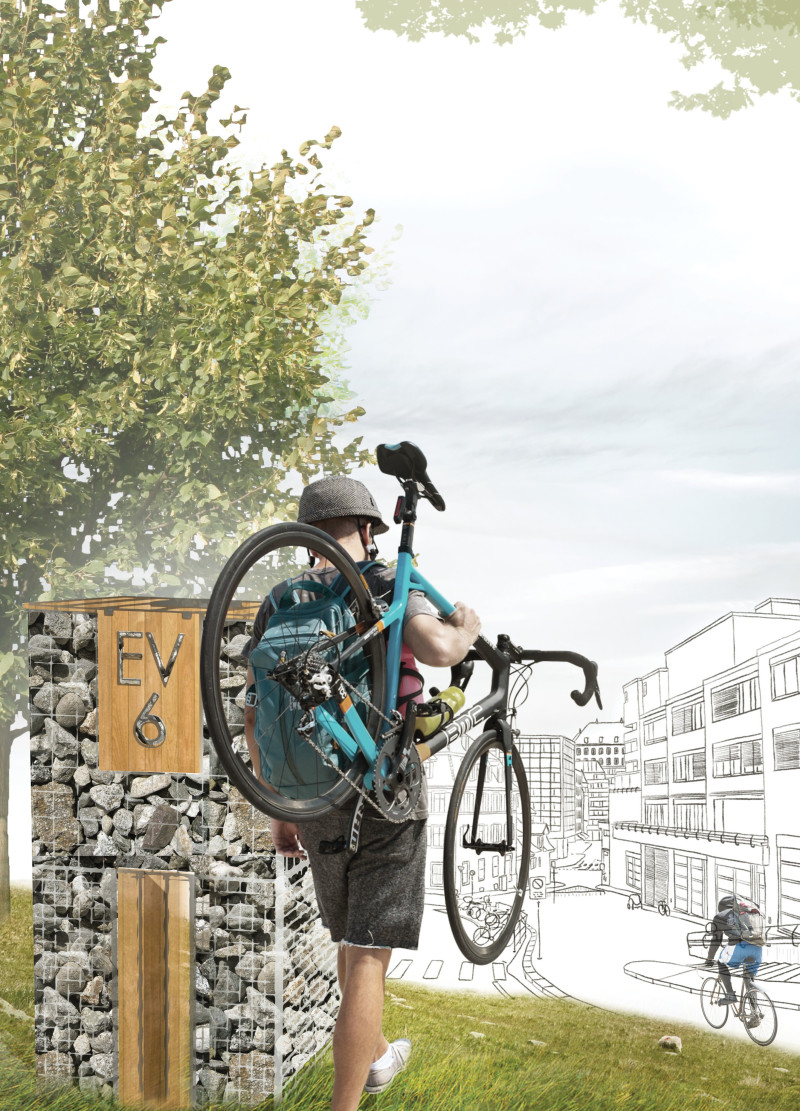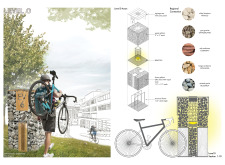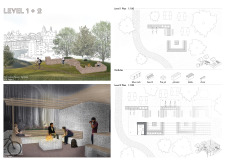5 key facts about this project
The design of the bike stops along EuroVelo 6 provides practical spaces that enhance the cycling experience. Located along a varied landscape, these stops serve as points of rest and social interaction for cyclists. The concept is focused on encouraging exploration and engagement with the surroundings while offering a place to relax and connect with other riders.
Modular Design
Four types of bike stops characterize the design: LO, L1, L2, and L3. The LO stop serves as a wayfinding marker, featuring signage and bike stands, alongside tools for simple repairs. The incorporation of solar-powered lights ensures that these markers are visible at night, helping cyclists navigate the trail.
Rest Stops
The L1 and L2 stops are designed for resting during long rides. Each is equipped with benches, tables, fire pits, and tent pads for overnight camping. L2 includes additional amenities such as bathrooms and overhead coverage to protect against the weather. This modular approach allows each stop to adapt to different terrains while fostering opportunities for socializing among cyclists.
Cabin Retreat
L3 serves as a more comprehensive cabin option. It offers covered bike racks, sleeping space for four people, and bathroom facilities. Large windows and clerestory lighting bring in natural light, making the cabin inviting. It also includes a fireplace and storage, providing comfort for those who stay overnight. The roof area is accessible and functions as a communal gathering space, offering a vantage point to view the landscape.
Material Integration
The materials used in the design include stone and wood. Stone is primarily shaped into gabions, providing strength and durability. This choice echoes the local geology, connecting the stops to their environment. Wood offers warmth and a lightweight quality, balancing the heavier stone elements. Variations in stone type add unique textures, enhancing the visual appeal of the bike stops. Thoughtful lighting allows light to filter through the gabions, creating a guiding glow along the cycling route.





















































